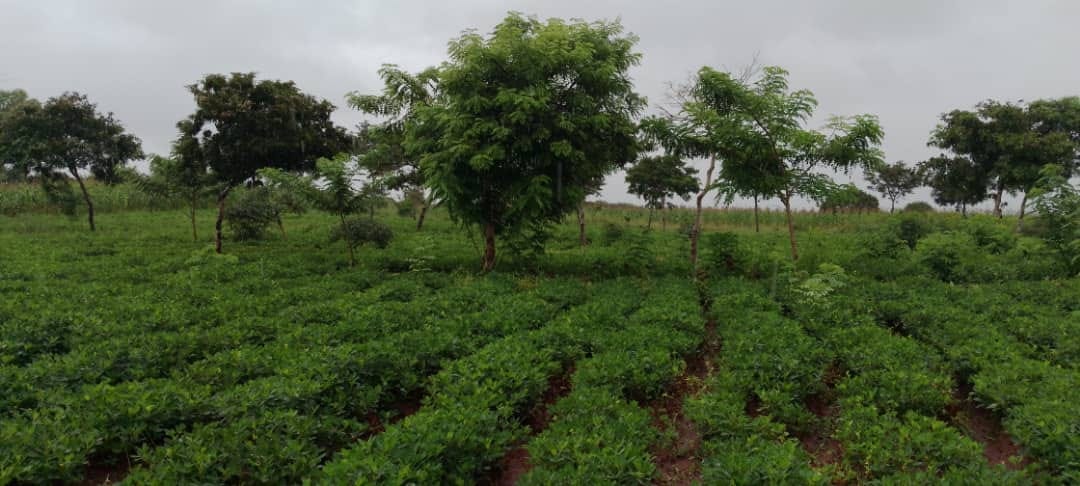Malawi farmers praise ASWAP-SP II for improved agriculture
Malawi farmers thank ASWAP-SP II for improved agriculture through new tech, writes Susan Moyo.
Mzimba, Malawi— Smallholder farmers in the Chisangano area of Traditional Authority Mtwalo, Mzimba district, are praising the Agriculture Sector Wide Approach - Support Project (ASWAP-SP II) for its role in improving their lives through the introduction of innovative farming technologies, writes Susan Moyo.
The project, implemented in a model village called Timeyo Shonga within the Zombwe Extension Planning Area (E.P.A. ), allows farmers to choose the most suitable farming methods to enhance crop production in their region.
The model village showcases various farming technologies, including:
Agroforestry systems
Double-row soya planting
Intercropping
Banana macro propagation
Maize variety trials
Standard kraals for goats
These technologies aim to increase agricultural productivity and provide farmers with valuable options for sustainable farming.
ASWAP-SP II targets 300,000 rural households across 12 districts in Malawi, aiming to enhance productivity and market access for selected commodities among smallholder farmers.
Adson Gama, a farmer from Timeyo Shonga Model Village practising agroforestry agriculture, expressed his satisfaction with the intervention, stating, "Before the intervention, I was only harvesting 18 bags of maize weighing 50 kilogrammes on my one-acre land. However, since ASWAP-SP II, I have learned about agroforestry farming, and now my harvest has tremendously increased. I now harvest more than 50 bags on the same piece of land."
Gama added that the project has also improved food security, increased income, and enhanced the nutrition status of his family.
Mercy Nyirenda, another farmer from the area, adopted the intercropping method and reported successful outcomes.
"With support from ASWAP-SP II, I learned how to make manure and applied it to the field where I planted maize together with beans. Now both crops have done well. I will harvest beans as well as maize on the same piece of land. I am encouraging my fellow farmers to try this new technology," she shared.
Intercropping farming not only benefits individual crop growers but also the entire community. It helps with land management, increases profits, prevents soil erosion, reduces the use of inorganic substances, and improves consumer health, according to GeoPad Agriculture.
Moses Shonga, a lead farmer from Timeyo Model Village, expressed how his life and the lives of others have been transformed through the adoption of new farming technologies.
"Considering the escalating fertiliser prices, I opted for agroforestry farming to improve soil fertility. I also learned how to make manure, which I use on my farm. The harvests are significantly higher compared to previous years," he remarked.
Richman Ngoma, Chairman of Timeyo Shonga Model Village, expressed gratitude for the project's impact on the community.
He stated, "We faced numerous challenges in our farming, including infertile soil and limited knowledge of new farming technologies, leading to food insecurity. However, with the arrival of ASWAP-SP II, things have changed, and we are now harvesting more on smaller plots of land."
Edith Mithembo, the ASWAP-SP II desk officer for Mzimba North, highlighted that over 1,440 households directly benefit from the project in the area.
"Through the project, farmers have adopted new farming technologies, resulting in higher yields. "In addition, farmers have received training on cross-cutting issues such as gender, nutrition, and plant health," she explained.
The Ministry of Agriculture has been implementing the project since 2018, with the final phase scheduled to conclude in June.
The ASWAP-SP II has played a significant role in transforming agriculture practices and improving the livelihoods of smallholder farmers in the region.




The reported yield increases are massive and will have helped the small holder farmer significantly. Conservation farming is another technique which benefits small holders.